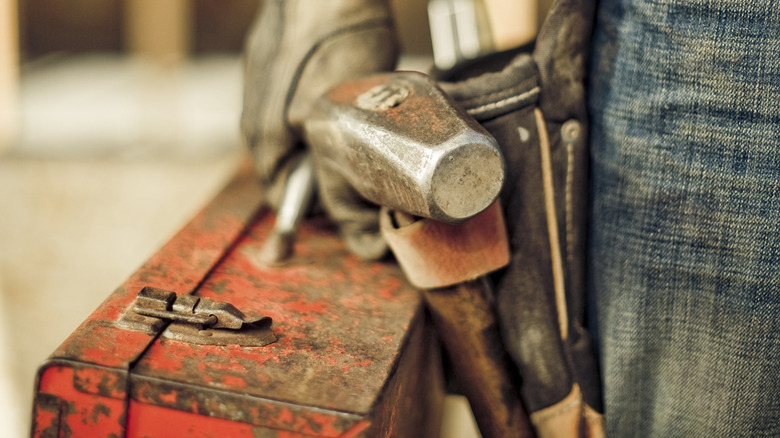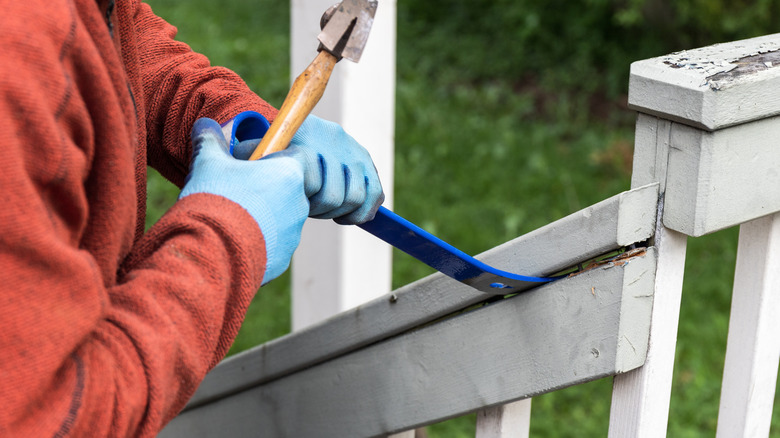The Common Hand Tool You Don't Need To Spend A Fortune On When Purchasing
We may receive a commission on purchases made from links.
Let's face it, when it comes to buying tools, more expensive tends to mean better quality. But when you're renovating on a budget, it's just not feasible to spend an arm and a leg on one simple tool. A pry bar is one of those tools that shouldn't cost you a fortune to beef up your toolbox but one that every homeowner should have in their arsenal. In this case, the smartest option is the budget-friendly one.
If you're just starting out or a seasoned home-improvement professional, you might be in the market for a new hand tool. A pry bar can be the perfect versatile addition to any tool kit, tackling a whole host of tasks that make renovating a space that much easier. It can be the tool of choice when you need to remove a nail without damaging the surrounding area, especially your walls, and its sturdy structure allows it to tackle tougher jobs like prying up floorboards, tile, or trim.
Pry bars work by using leverage to separate surfaces even when they are nailed tightly in place. While these tools are optimal for all kinds of tasks, you don't need to splurge on the expensive ones in order to get the job done. In fact, the cheap options hold up just as well, protecting your surfaces and budget.
The budget-friendly option
You might be wondering why you shouldn't splurge on a pry bar and the answer is pretty simple. Pry bars aren't complex hand tools so they don't require complex components like power tools. Even when buying a cheap version, they are often made from heavy steel, meaning you aren't really getting anything extra with that large price tag. Because they are such simple tools, an expensive version doesn't bring much to the table beyond an enhanced grip. A cheap pry bar brings all the necessary bells and whistles that are essential when using this tool without driving a hefty price. And if your tool gets damaged or goes missing, it won't be a big investment to find yourself a replacement.
There are a whole host of other simple hand tools that make budget-friendly additions to any tool kit. The key to understanding which tools you don't need to spend a lot of money on is in the level of complexity that the tool requires. For example, hammers and rubber mallets are both weighted tools used to nail something into place, from picture hooks to floorboards. They don't require any additional features beyond a head and a handle, meaning you can almost always go for the cheaper choice. In the same vein, a set of pliers can be the perfect addition to your collection without running up the budget. If you're just casually using them around the house, you don't need anything fancy for them to last you a long time.

